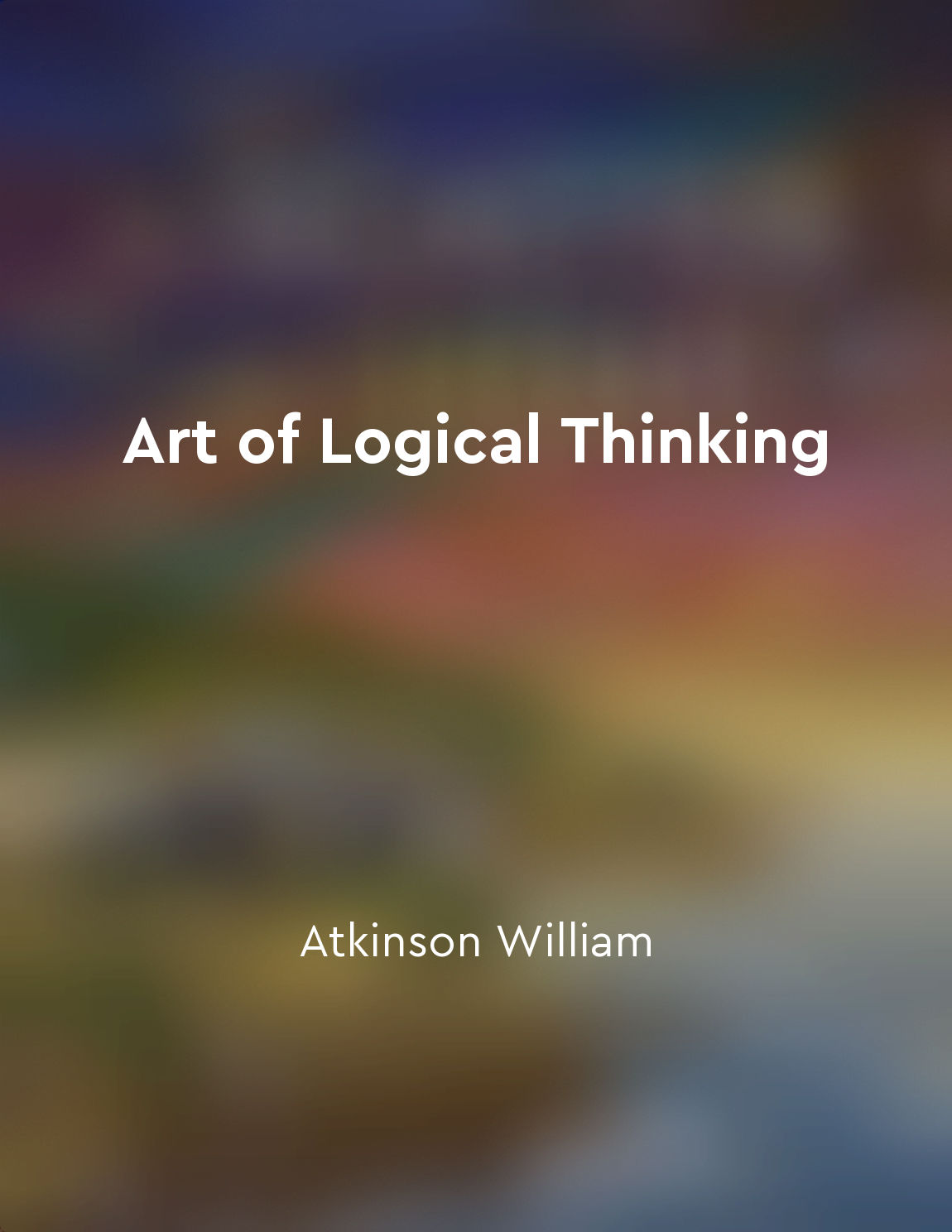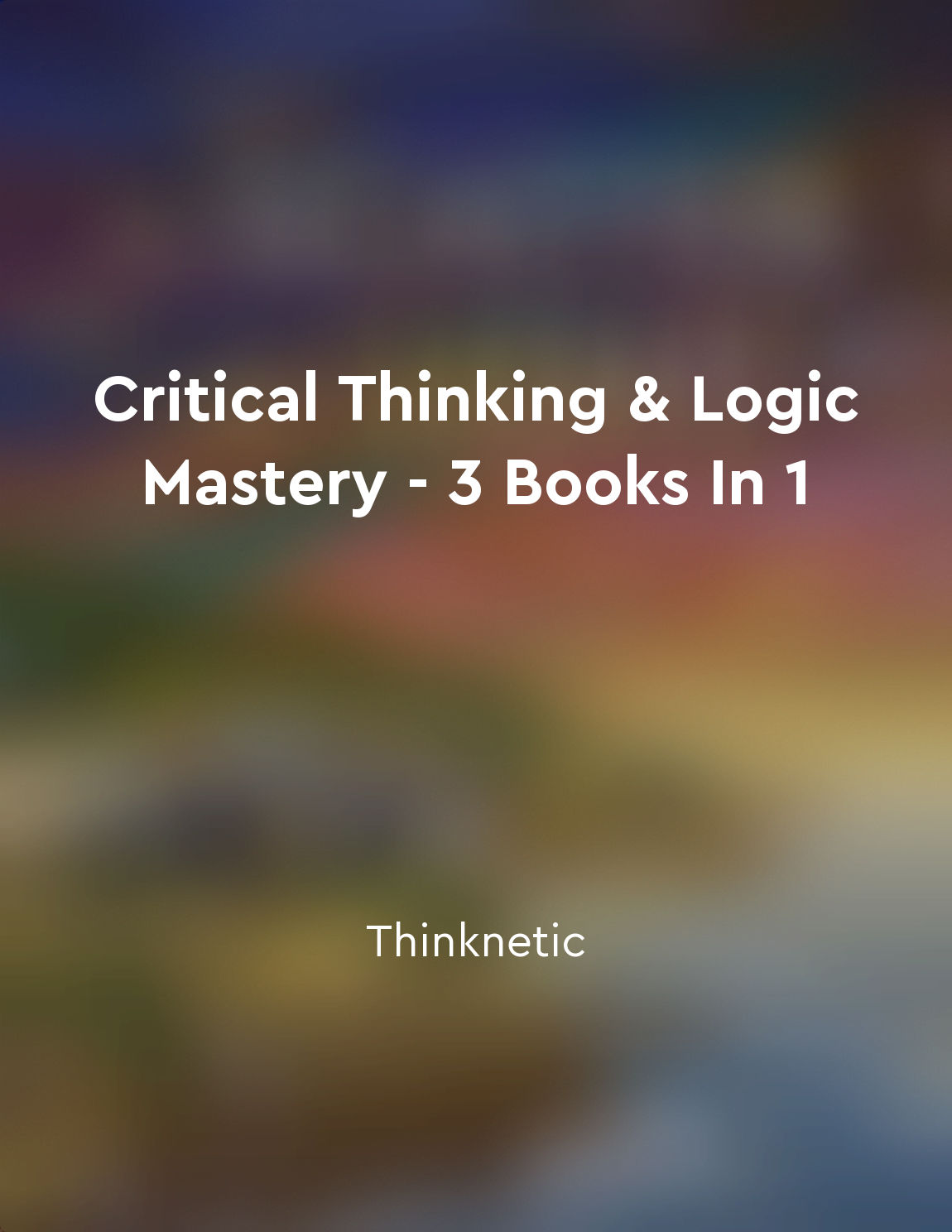Audio available in app
Deductive reasoning involves making specific conclusions from "summary" of Critical Thinking & Logic Mastery - 3 Books In 1 by Thinknetic
Deductive reasoning is a method of logical thinking that involves starting with a general statement and then drawing specific conclusions based on that statement. In deductive reasoning, the conclusions that are reached are necessarily true if the general statement is true. This type of reasoning follows a top-down approach, where one starts with a broad idea or theory and then moves down to specific instances or examples. When using deductive reasoning, one must first establish a premise or general statement that serves as the foundation for the argument. This premise is typically based on accepted principles, theories, or beliefs that are known to be true. From this premise, one can then apply logical reasoning to reach specific conclusions that are derived from the initial statement. The key to deductive reasoning is that it is based on sound logic and follows a systematic process of reasoning. By starting with a general statement and moving towards specific conclusions, one can ensure that the conclusions reached are valid and reliable. This method of reasoning is commonly used in mathematics, philosophy, and science, where logical principles are crucial for drawing accurate conclusions. In deductive reasoning, the process of moving from a general statement to specific conclusions is guided by the principles of validity and soundness. Validity refers to the logical structure of the argument, where the conclusions necessarily follow from the premises. Soundness, on the other hand, refers to the truth of the premises themselves. For deductive reasoning to be effective, both validity and soundness must be present in the argument.- Deductive reasoning is a powerful tool for making specific conclusions based on general principles or beliefs. By following a systematic process of logical reasoning, one can ensure that the conclusions reached are accurate and reliable. This method of thinking is essential for critical thinking and problem-solving, as it allows individuals to draw informed conclusions based on established principles and beliefs.
Similar Posts

Modifying arguments based on new information is important
When engaging in logical thinking, it is crucial to recognize the significance of adapting one's arguments in light of fresh in...
Strengthen analytical thinking
To sharpen our analytical thinking skills, we must first recognize that thinking is not a passive activity, but rather an activ...
Embrace uncertainty as a natural part of the decisionmaking process
One of the key aspects to keep in mind when making decisions is the inevitability of uncertainty. Uncertainty is not something ...
Certainty is unreachable
The human understanding is limited in its capacity to attain absolute certainty. We are confined within the bounds of our own p...
Make sound financial decisions and manage money wisely
To achieve success in life, it is essential to understand the importance of making sound financial decisions and managing money...
Importance of percentages in mathematics
Percentages play a crucial role in the field of mathematics. They are used to represent parts of a whole in terms of hundredths...
It requires analyzing information objectively
Analyzing information objectively is a crucial aspect of critical thinking. This means looking at information without being inf...
Encouraging curiosity and exploration
Encouraging curiosity and exploration is fundamental to fostering a spirit of inquiry and discovery in learners. When students ...
Cultivate a positive attitude
When it comes to cultivating a positive attitude, it's important to understand that it's not about being blindly optimistic or ...
Foster a competitive spirit
Fostering a competitive spirit in students is essential for their overall growth and development. Competition encourages studen...


